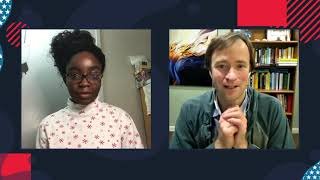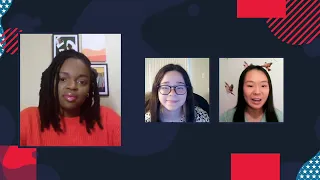In the aftermath of the divisive 2020 presidential election, PBS NewsHour and Student Reporting Labs (SRL) aired "We the Young People", a half-hour virtual special highlighting the impact of young voters. The show featured teen voices and conversations with experts focusing on issues that affect young people.
In the first video, Jevin West, an Associate Professor at the University of Washington who studies the spread of misinformation, talks to student reporter Bridgette Adu-Wadier about the ongoing problem of misinformation online and in our society and how it has impacted democratic processes. In the second video, multimedia reporter Heather Taylor-Wynn talks to two teen fact-checkers from Poynter’s MediaWise program about solutions to slow down the spread of misinformation.


Determine the kinds of sources that will be helpful in answering compelling and supporting questions, taking into consideration multiple points of view represented in the sources, the types of sources available, and the potential uses of the sources. (NCSS D1.5.9-12)
Students recognize the responsibilities and opportunities for positively contributing to their digital communities. (ISTE)
Students leverage technology to take an active role in choosing, achieving and demonstrating competency in their learning goals, informed by the learning sciences. (ISTE)
Students communicate clearly and express themselves creatively for a variety of purposes using the platforms, tools, styles, formats and digital media appropriate to their goals. (ISTE)
Journalism
Media Literacy
Digital Literacy/Citizenship
Lessons
Beginner
Internet
Notebook
50 Minutes